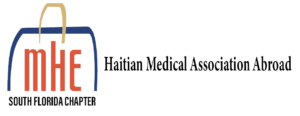Monday, January 25, 2010
I came back last night in a military transport plane Lockheed C5 Galaxy along with hundred of expatriated Haitian Americans.
I will focus on two aspects of my trip:
- The post surgical phrase: a suggested model of neighborhood based care
- The Haitian and Haitian-American medical response
Upon arriving at the PAP airport, I experienced similar feelings described by others, despite the fact that I traveled as a Medishare representative. I did not stay idle long since I am lucky to belong to several organizational and family networks. So I quickly connected to them.
Communication is still a problem but is improving. I will not spend more time describing logistical problems since they will progressively be resolved. Safety was not an issue. I traveled to several neighborhoods in Port-au-Prince and never witnessed any riots conditions, even at the water or food distribution stations. I saw lines of people waiting in front of the immigration office and the money transfer stations in amazingly orderly fashion considering circumstances.
The first response phase is now heading to it end. As the surgeries for critically injured patient’s decrease, the health care workers are finding surgical complications of emergency amputations, infected wounds, increasing demands for general medicine, and pediatrics. Patients who have put aside medical concerns not considered urgent are now seeking help. Their usual medical homes and providers are not longer operational.
Some patients suffering from hypertension, cardiac diseases are entering a decompensation phase and some are panicking. Post-traumatic stress is a fact, nourished by daily aftershocks and food insecurity.
These are the needs of the makeshift health system:
- Decentralizing the provision of care from the established functioning health facilities or the newly created ones such at the UM /Medishare compound on the Airport grounds
- Needs to launch neighborhood points of service general medicine – pediatric, wound care, psychological support which should have additional function of light meal distributions and “general store” function.
- Transportation is extremely chancy and one visit to a neighborhood clinic can meet several needs. As these makeshifts clinics receiving more help and personnel can branch out and send outreach teams with capacity of penetration in the urban corridors of Port-au – Prince.
- The neighborhood clinics will be connected to larger sources of medication and food supplies and to referral routes for their sicker patients
- I was fortunate to connect wit Dr. Daniel Henrys, a family physician and public health specialist who happens to be a former Minister of Health and my brother-in-law. Using Daniel extensive knowledge of the medical resources and facilities, our two person team (one Haiti based family physician and one US based with access to the supply line) was able in two days, to open the Rue Lamarre Clinic in the former polyclinic where Daniel father, Dr. Max Henrys had practiced for decades, in the very street where we both grew up.
- Teams made of Haitian medical volunteers (4th and 3rd year medical students and nurses) go out everyday on foot to the encampment on Champ de Mars , Kafou Fey or Bel Air. where the medical care has been spotty or inexistent. Everyday one or two outposts would open and connect with the Rue Lamarre Clinic. The Clinic is a site of “medecins du Monde” providing organization and logistic support as well as access to essential medications obtained through Promise.
My role was essentially to connect the dots:
- Bringing for example Dr. Arturo Britto, a community pediatrician and fellow Katrina veteran to the RLC (Rue Lamarre Clinic) to work with the Medecins du Monde/Haitian volunteer teams.
- Bringing Dr. Gwen Wurm, a UM pediatrician to visit an orphanage run by a faith based organization. The orphanage, with extensive ground facilities and lodging room, could be a pediatric discharge facility .The facility like many other NGOs involved in Haiti, have their own medications and surgical supplies donated over the years by US supporters.
- When these dots are connected and the communication lines are established, newly arrived volunteers can be plugged in the system as the first outreachers and “pass the baton”.
Problems that must be solved in the next few weeks:
- Redistribution of medical and nursing staff volunteers from the large “Hospitals”. Many devastated other cities are still waiting for basic medical care.
- Inventory of the tons of medical supplies.
- Improved communication lines and transportation services
Michel J.Dodard M.D
Associate Professor
Department of Family Medicine & Community Health
Leonard Miller School of Medicine , University of Miami
